W. L. Hixson, Parting the Curtain. Propaganda, Culture and the Cold War, 1945—1961 (London, 1997), pp. 178—9.
L. Attwood, “Housing in the Khrushchev Era”, in M. Ilic et al. (eds.), Women in the Khrushchev Era (London, 2004), pp. 186—8.
Reid, The Exhibition “ Art of Socialist Countries”, p. 103.
S. Reid, “Women in the Home”, in Ilic et al. (eds.), Women in the Khrushchev Era, p. 168.
D. Filtzer, Soviet Workers and De-Stalinization (Cambridge, 1992), pp. 232—3.
S. Baron, Bloody Sunday in the Soviet Union. Novocherkassk, 1962 (Stanford, 2001), pp. 26—7.
А. Микоян. Так было. Размышления о минувшем. М., 1999. С. 610.
L. Alexeyeva and P. Goldberg, The Thaw Generation. Coming of Age in the post-Stalin Era (Boston, 1990), pp. 95—7.
P. McMillan, Khrushchev and the Arts. The Politics of Soviet Culture, 1962. 1964 (Cambridge, Mass., 1965), pp. 101—5.
Описано в D. Volkogonov, Autopsy for an Empire. The Seven Leaders Who Built the Soviet Regime (New York, 1998), p. 236.
Wu Hung, Remaking Beijing: Tiananmen Square and the Creation of Political Space (London, 2005), pp. 108—30.
S. Schram, The Thought of Mao Tse-Tung (Cambridge, 1989), P. 154.
S. Schram (ed.), Mao Tse-tung Unrehearsed: Talks and Letters, 1956—71 (Harmondsworth, 1974), pp. 114—15.
S. Goncharenko, “Sino-Soviet Military Cooperation”, in О. Е. Westad (ed.), Brothers in Arms. The Rise and Fall of the Sino. Soviet Alliance 1945—63 (Stanford, 1998), p. 160.
Communist China. Policy Documents with Analysis (Cambridge, Mass., 1962), pp. 151—63.
Li Zhisui, The Private Life of Chairman Mao (London, 1994), p. 222.
J. Ch'en, Mao Papers: Anthology and Bibliography (New York, 1970), pp. 62—3.
D. Yang, Calamity and Reform in China. State, Rural Society, and Institutional Change since the Great Leap Famine (Stanford, 1996), p. 34
L. Zhang and C. Macleod (eds.), China Remembers (Oxford, 1999), p. 76.
S. Potter and J. Potter, Chinas Peasants. The Anthropology of a Revolution (Cambridge, 1990), p. 71.
Zhang and Macleod, China Remembers, p. 78.
Li, Private Life, pp. 277—8.
Там же, с. 302.
Цит. по Н. Harding, “The Chinese State in Crisis”, in R. Macfarquhar (ed.), The Politics of China. The Eras of Mao and Deng, 2nd edn (Cambridge, 1993), p. 234.
Decision of the Central Committee of the Chinese Communist Party Concerning the Great Proletarian Cultural Revolution (Beijing, 1966), p. 1.
Цит. по Harding, “Chinese State”, p. 169.
Gao Yuan, Born Red: a Chronicle of the Cultural Revolution (Stanford, 1987), pp. 86, 89—90.
Цит. по P. Clark, The Chinese Cultural Revolution. A History (Cambridge, 2008), p. 61.
Там же, с. 2.
A. Finnane, Changing Clothes in China. Fashion, History, Nation (London, 2007), p. 237.
О понятии «виртократии» см. S. Shirk, “The Decline of Virtuocracy in China”, in J. Watson (ed.), Class and Social Stratification in post-Revolution China (Cambridge, 1984).
Liu Guokai, A Brief Analysis of the Cultural Revolution, trans. A. Chan (Armonk, NY, 1987), p. 47.
J. Sheehan, Chinese Workers: A New History (London, 1998), pp. 123—4.
R. Madsen, Morality and Power in a Chinese Village (Berkeley and Los Angeles, 1984), pp. 180—98.
G. White, The Politics of Class and Class Origin: The Case of the Cultural Revolution, Contemporary China Papers, 9 (Canberra, 1976), p. 46.
Цит. там же, с. 37.
См. R. Kraus, Class Conflict in Chinese Socialism (New York, 1981), pp. 164—6.
Zhang and Macleod, China Remembers, p. 120.
Там же, сс. 120—121.
Цит. в R. Macfarquhar and M. Schoenhals, Mao’s Last Revolution (Cambridge, Mass., 2006), p. 199.
Там же, с. 155.
Там же, сс. 162—163.
Gao Yuan, Вот Red, pp. 179 ff.
Об этих примерах см. D. Leese, “The Мао Cult as Communicative Space”, Totalitarian Movements and Political Religions 8 (2007), pp. 632—4.
Цит. там же, сс. 633—634.
Zhang and Macleod, China Remembers, p. 140.
Цит. по J. L. Anderson, Che Guevara. A Revolutionary Life (London, 1997), p. 130.
Ernesto "Che" Guevara, The Bolivian Diary of Ernesto Che Guevara, 2nd ed. (New York, 1996), p. 316.
P. Neruda, "La United Fruit Co." (1950), in P. Neruda, Canto General, trans. J. Schmitt (Berkeley, 1991).
Цит. по Anderson, Che Guevara, p. 126.
Anderson, Che Guevara, pp. 163, 23.
Цит. по G. M. Kahin, The Asian-African Conference. Bandung, Indonesia, April 1955 (Port Washington, NY, 1972), p. 42.
С. Romulo, The Meaning of Bandung (Chapel Hill, 1956), p. 91.
Там же, с. 11.
Kahin, The Asian-African Conference, p. 46.
The Conference of Heads of State or Government of Non-Aligned Countries (Belgrade, 1961).
W. Shinn, “The «National Democratic State»: a Communist program for Less-Developed Areas”, World Politics 15, 3 (1963), pp. 177—89.
V. Zubok, A Failed Empire. The Soviet Union in the Cold War from Stalin to Gorbachev (Chapel Hill, 2007), pp. 109—10.
Shinn, The «National Democratic State».
Эту мысль впервые высказал индонезиец Дипа Айдит. См. С. Jian, China and the Cold War (Chapel Hill, 2001), p. 212.
Читать дальше
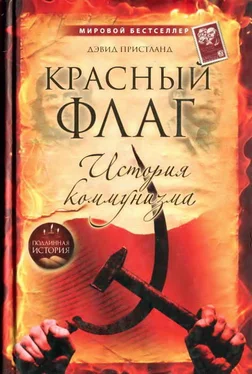
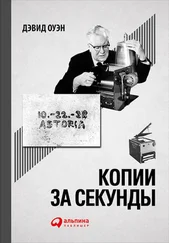
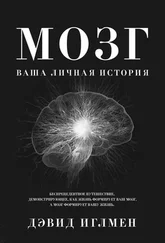

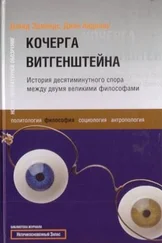

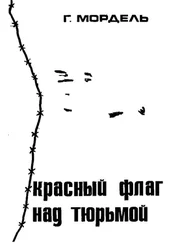
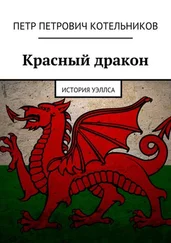
![Рауф Габидулин - История коммунизма в России [litres]](/books/431152/rauf-gabidulin-istoriya-kommunizma-v-rossii-litres-thumb.webp)

